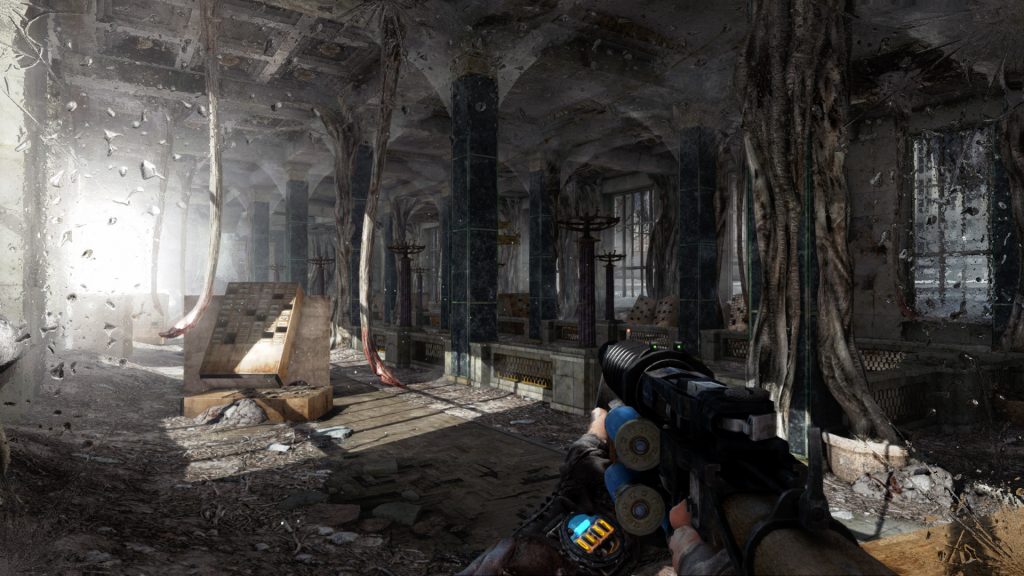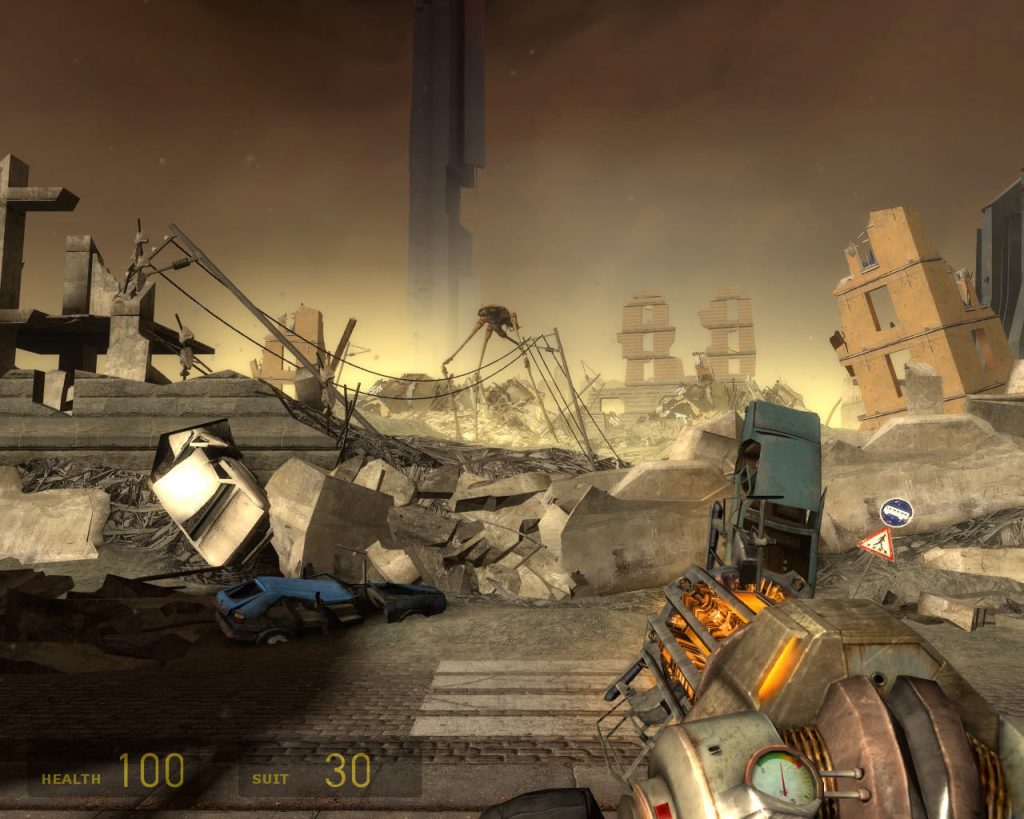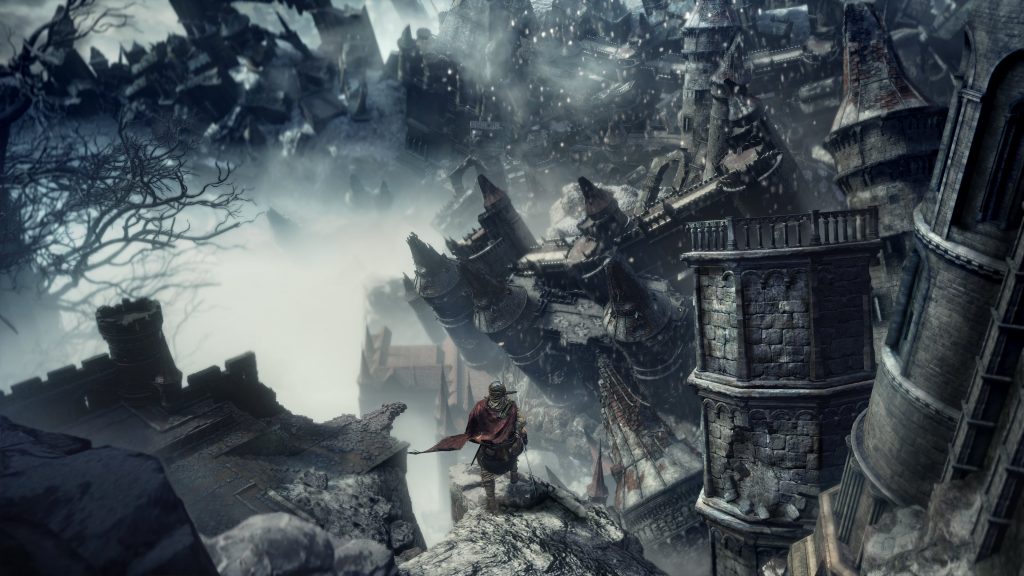Obsessed with obliteration: The longing for decay in video-games
In his article ““Ruinensehnsucht: Longing for Decay in Compter Games”, Mathias Fuchs talks about the fascination with ruins present in many video games. The word “ruinensehnsucht” in the title of the article is derived from German, where-in sehnsucht means wistful longing for something, in this case ruins or decay.
According to Fuchs video game environments are perfect by their nature. They do not corrode, rust and decay with time, weather, the laws of nature and the passing of seasons doesn’t affect them. Yet there’s a lot of ruins, mold, imperfections and decay present in many video games. He argues that this decay goes beyond mere realism, that there must be a more subconscious desire for decay driving game designers and artists to include decayed buildings and ruins in their games. He suggests that there are four different explanations that can be used to understand this preoccupation with putrefying. These four are the media history of video games, history of the visual arts, psychoanalysis and transmedia megatext.
When you analyze the evolution of visual fidelity in video games, it becomes apparent that the more imperfect a world is, the more impressive it is often seen as. Dust particles, smoke and other visual effects require processing power in order to be implemented, it is far less straining to create a “perfect” virtual environment. When inspecting long running series such as Unreal Tournament and Tomb Raider, one can witness that over time both game environments and characters have become more rugged and imperfect due to progress of technology. Whereas earlier video game protagonists looked perfect and had immaculate clothing, nowadays their faces are covered by bruises, scars, skin impurities and unkempt hair and their clothes are stained.
Depictions of ruins have been common in other mediums as well, such as in Italian Rococo and German Romantic paintings. With post-apocalyptic games galore, the 21st century has seemingly entered a similar phase in video games, with series such as Fallout, Metro 2033 and S.T.A.L.K.E.R reveling in the imagery of ruination and decay.
Some have theorized that there’s a psychological allure to decay. The concept of “death drive”, brought forth by Sigmund Freud in the 1920s, tries to explain fascination with death, destruction and ruins as an inherent part of the human psyche. Although the model is controversial amongst psychologists, Fuchs argues that it resonates with video games as death and destruction are recurring themes in gameplay
Finally, Fuchs suggests that one will have the best experience of an in-game ruin by contextualizing it to the history of artificial ruins in architecture, to key works from the history of paintings, as well as ruins present in literature, film, television etc. He argues that the full experience of transmedia storytelling lies in understanding the full range of references in work such as S.T.A.L.K.E.R, which is a video game adaptation of a movie that was based on a novel.
The importance of transmedia is also seen in the fact that sharing assets across media is a way to reduce production costs as video game graphics are becoming more realistic.
As Fuchs puts it, “ruins have cultural connotations, architectonic references, hopes and anxiety of a psychological nature, mediatic representations, myths and mysteries.” Some of the games he mentions in the article are good examples of how especially the myths and mysteries present in ludic ruins help to motivate players to explore game environments.
Original article: http://todigra.org/index.php/todigra/article/view/68
Picture sources:
https://static.giantbomb.com/uploads/original/14/146856/2680790-9012227051-84DjN.jpg
http://www.mobygames.com/images/shots/l/166944-half-life-2-episode-one-windows-screenshot-ruins-of-city-17.jpg
http://cdn3.twinfinite.net/wp-content/uploads/2017/03/Map_Background1_1485171627-min.jpg
More from Game Research Highlights
How do you want to do this? – A look into the therapeutic uses of role-playing games
Can playing RPGs contribute positively to your wellbeing? A recent study aims to find out how RPGs are being used …
Eldritch horrors and tentacles – Defining what “Lovecraftian” is in games
H.P. Lovecrafts legacy lives today in the shared world of Cthulhu Mythos and its iconic monsters. Prema Arasu defines the …
Are Souls Games the Contemporary Myths?
Dom Ford’s Approaching FromSoftware’s Souls Games as Myth reveals the Souls series as a modern mythology where gods fall, desires …















